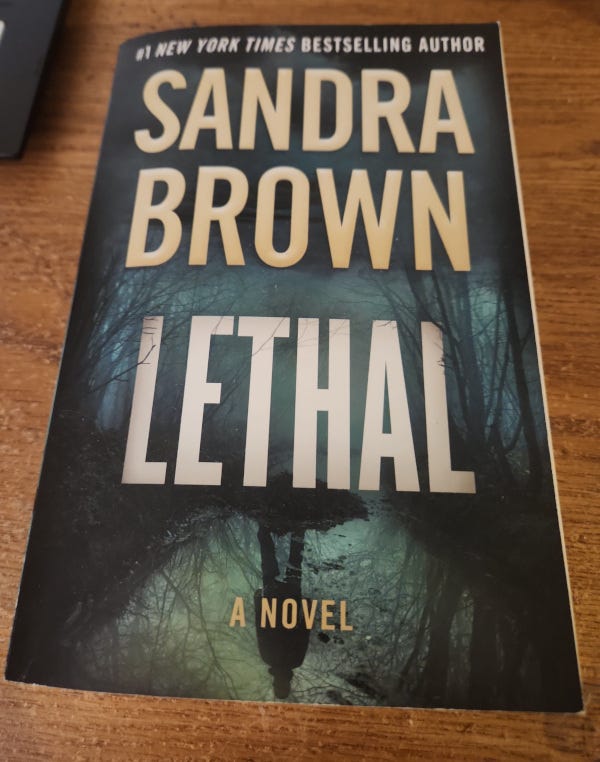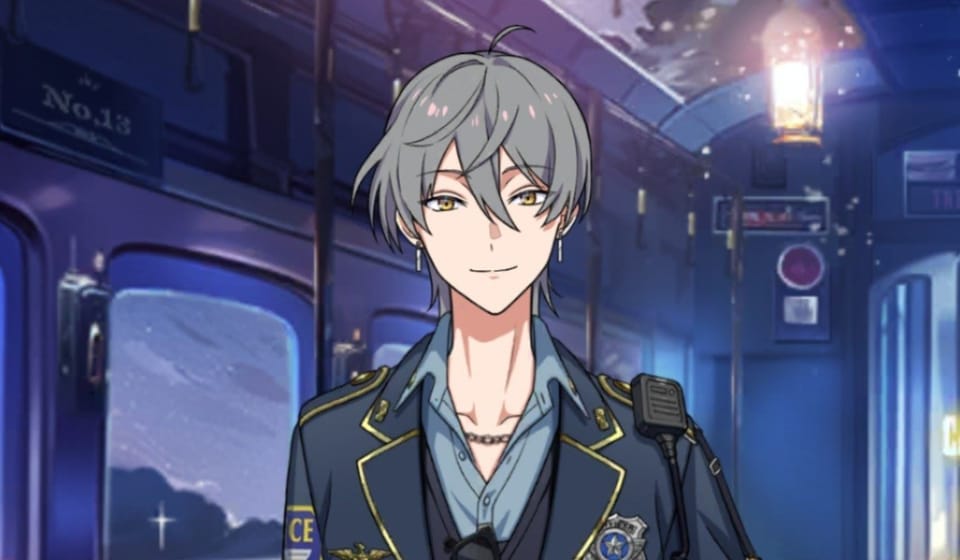Why a Random Stranger Would Read Your Fiction Book
And no, you don’t need to be an established author to get attention

There’s an uncomfortable question that I want to address.
A while ago, my nonfiction writing coach gave us feedback on our work. He said to a classmate, let’s call her Rini, that she shouldn’t name her Substack “Rini’s Journey.”
He asked, “Why would a random reader on the internet care about someone they don’t know called Rini?”
She was a little upset by that remark.
It made me think more, too. Our nonfiction coach trained us to scan headlines to see if we, as random strangers, would care enough to click on them.
With nonfiction, this is fairly straightforward to do. If the title is interesting or relevant to my life, then I might click it.
If it’s not interesting or relevant to my life, then I would ignore it. Yes, it’s subjective since what’s irrelevant to my life, may be relevant to yours! We don't all have the same interests, either.
But with fiction, how do you grab someone’s attention?
I’m thinking about novels and serial fiction in particular. Especially since they take much longer to read than a short story or flash fiction piece.
Many people recommend having a gorgeous cover, but frankly speaking, pretty covers are everywhere. How do you stand out from the crowd? Not to mention that what’s “beautiful” is different for different readers.
Another tip is to have word-of-mouth recommendations, plus amazing reviews. This is hard if you’re still new and not established, though.
Having a compelling title that sounds like your genre helps, too. You can check out other books in your genre to see what styles of titles they use, and what fits your vibe most.
However, there’s no shortage of books with great covers, intriguing titles, and fabulous reviews. So how can you distinguish yourself from the rest? Especially if you’re not established, and don’t have thousands of 5-star reviews and raving fans yet.
The Secret Sauce to Selling Books
What many people overlook, are the tropes you see on the backcover blurb.
Tropes are common patterns of character, plot, theme, etc. For example, “love triangles,” “animal sidekicks,” “dark backstory,” and so on.
People love tropes. No, I’m not saying we don’t care about originality. But if there aren’t any popular tropes, the story could be alienating to most readers.
You can always have new twists to old tropes. Such as a love triangle turning into a throuple. (Though maybe that’s not a new twist anymore.)
Lately, I started reading this highly rated graphic novel. Wow, I'm absolutely obsessed with it now. It’s totally up my alley, and I can see why many others were enthralled by it.
It had:
- A school of magic
- Humanoid supernaturals (ghouls who look like humans)
- School houses and their politics
- Relationship drama, both romantic and platonic.
- Mystery solving and monster battling
- A cast full of gay. Okay this is more implied than confirmed, but many of the men flirt with each other. Yes, I know straight men can flirt with each other too, but there’s a different vibe here.
- Hilarious cast of characters with various personalities and dynamics.
And many others.
Do you get the picture? It’s a whole network of classic, well-loved tropes!
And they put in enough twists to keep the story engaging.
The goal is not to make something so new and foreign to most readers. But rather to create something that is familiar with some twists.
When I buy new books, I look for tropes I enjoy with some surprises.
The Book That Caught My Eye in a Store
For my 34th birthday, I went to the bookstore and chose Lethal by Sandra Brown.

Here’s the blurb on the back of the book:
After her four-year-old daughter tells her that a sick man is lying in their front yard, Honor Gillette discovers that it’s Lee Coburn, a man accused of murdering seven men the night before. Armed and deadly, he promises Honor that she and her daughter won’t be hurt if she does everything he asks.
Then Honor witnesses a shocking act of brutality—and learns that even those closest to her can’t be trusted. Claiming that her late husband possessed something valuable and dangerous, Coburn convinces her that he must find it before it falls into the hands of the Bookkeeper, a merciless crime boss who will stop at nothing until they are all dead.
Now, from Washington, DC, to coastal Louisiana, the desperate trio run for their lives from the very people sworn to protect them, unraveling a web of corruption and depravity that threatens the fabric of our society.
First of all, I like stories where one of the main characters is a child.
I also loved the surprise of finding a sick man who then threatens them. But he seemed to be trying to protect them from something.
So that makes you wonder whether he’s friend or foe. By the end of the blurb, you see that he’s a friend, since he, Honor, and her daughter have to run from those who were supposed to protect them.
What’s more, I love seeing betrayals in fiction (though I hate them in real life).
The Bookkeeper sounds cool, too. A mysterious codenamed crime boss that everyone fears. The name Bookkeeper sounds so ruthlessly efficient, systematic, and organized.
This combination of tropes and surprises, persuaded me to buy this book out of the many others I checked out at the store.
What About Formulaic, Cookie Cutter Stories?
Some people complain about “formulaic, cookie cutter” stories.
I wonder if the stories they complain about, are truly “cookie cutters” or are simply too close to the classical tropes for their liking.
The general audience, i.e. most people, enjoy seeing familiar things. That means lots of tropes. With twists and surprises, yes, but not too much or else it’ll be distancing to the reader.
In a Facebook writing group, a woman wrote that her husband found her story idea overdone and uninteresting.
Her idea was a dystopian patriarchal society. The heroine struggles with the oppression until she finally escapes her country. She needs to hide from her pursuers, and to seek out new allies.
There was a range of opinions in the comments. Some people thought that her husband was right. The misogynistic, dystopian society has been done to death, so don’t do it.
Other folks replied that they would love to read this book, as it’s right up their alley. In fact, they asked if her husband had internalized misogyny and didn't like books that criticized the patriarchy.
The original poster (OP) clarified that her husband is feminist and progressive.
Some folks argued that no ideas are new anyway. Sure, dystopian, sexist societies are “overdone.” Yet, many readers still feel deeply about the topic. So they still buy these books.
Nevertheless, some people protested that yes, no ideas are new anymore, but you still need new twists. And you have to show these twists in the blurb, or else no one will be interested in the book.
My Take on the “Unoriginal” Dystopian Sexist Society Idea
What’s missing from this Facebook discussion, is that there are different audiences.
Different people have different needs for what they want to read. Some people are sick and tired of the dystopian patriarchy trope, and find it too depressing to read.
Some others are very intrigued and drawn to it like catnip. Yet some other folks are in between, where they welcome these stories but want some surprises and twists.
But even among the group that wants twists, there’s a range of preferences for how new and unexpected it must be.
It’s new enough for me if the heroine turns out to be a lesbian, and she elopes with another woman. But someone else might say they’ve seen that before, so they want something different.
Even one of the characters in Margaret Atwood’s A Handmaid’s Tale is a lesbian. So, gay women in dystopian patriarchies are not new.
What if we use this idea with a different species? Such as a dystopian sexist society but with dragons rather than humans. Or would that just feel the same to you?
Maybe dragons are overdone these days. We could make this society with dinosaurs instead, since dinosaurs aren’t as common as dragons in fiction.
On the other hand, some people lose interest when it veers too far from the original trope they enjoyed. Dinosaurs are cool, but the story doesn’t hit as hard as humans going through this oppressive society.
From these examples, you can see just how much variety there is in reader taste.
Now, I want to ask a different but related question:
What Books Are Alienating and Boring to Most People?
Thus far, we talked about how popular tropes can hook a reader’s interest.
It’s best to have new twists to familiar tropes.
But the degree of newness that someone needs, varies from person to person.
But we haven't thought of the opposite side of the equation.
What books contain so few popular tropes, that they feel foreign and therefore boring to most readers?
Note that I said most readers, not all readers.
Once, I took a course on 19th century novels. One book we read was Charles Dickens’ David Copperfield.
I loved it very much, and even called it a page turner. My professor responded, “You might be the only one who thinks so.”
Some people complain that “nothing happens” in literary classics like David Copperfield, so they’re not interested. This is strange, though, since a lot of things do happen, including people dying.
There may not be any magic or monsters (except the human kind). But there was tons of relationship drama, which I enjoy.
On the other hand, I read a book for high school English that bored me to tears.
It was One Day in the Life of Ivan Denisovich by Aleksandr Solzhenitsyn.
Solzhenitsyn’s book was about a man’s day in a Russian concentration camp. It’s important but not exactly riveting to a high school kid living in the 21st century in Hong Kong. There was little to no similarity between my life and the guy’s.
Sure, we shared a common humanity, where we both want to be treated with fairness and respect. Yet, the setting and era were so foreign to me, that I couldn’t connect with the character.
There weren’t any tropes I enjoyed, either, not even love drama. So there was nothing for me as a reader here, even though it was a Nobel Prize winning work.
Where Does All This Lead Us?
To captivate the interest of a random stranger, a great cover and title could help. So could word of mouth and amazing reviews.
But what appeals to many people, are familiar, well-beloved tropes, which you convey in the backcover blurb.
There are nuances to this advice, though. Readers won’t all like the same tropes. Some readers are sick of a particular trope. Others appreciate the trope but want surprises. Though how much surprise they want varies. You can make it too surprising that it becomes off-putting to some folks.
On the other side of the coin, some books, even if acclaimed, will have a hard time resonating with most readers.
By most readers, I mean the general population, not just English majors, literary critics, and fans of the classics
One reason is that many 21st century readers are bored if “nothing really happens.”
Sometimes, a lot of things do happen in the book, such as murders. But the reader’s overall impression is that the characters don’t do much other than stir up relationship drama.
If you’re like me and love relationship drama, that’s one thing. But not everyone does.
Another reason for alienating most readers, is if a book was relevant to an era that most 21st century readers can’t relate to.
Thus, it really pays to see what popular tropes there are in your book, and weave these tropes into your blurb.
That way, your target audience can see their favorite tropes and potentially buy your book.
Do you agree with my points? And is there anything I’ve missed? Let me know in the comments!
If you want to take your fiction writing craft to the next level, join me here!



